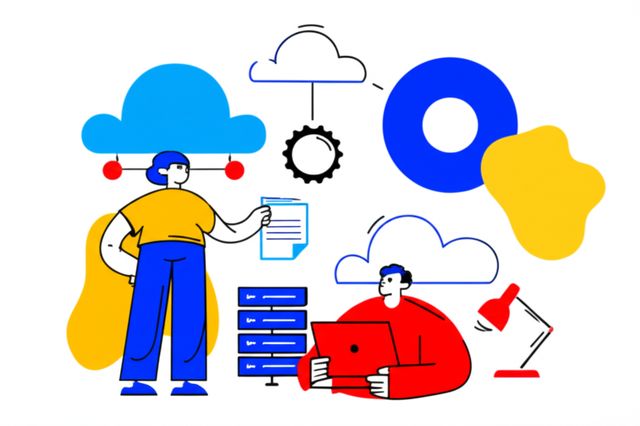Cloud Databases
Cloud databases are a type of database that is hosted in the cloud. This means that the database is not stored on a physical server on-premises, but rather in a remote data center. Cloud databases offer a number of advantages over traditional on-premises databases, including scalability, reliability, and cost-effectiveness.
Benefits of Cloud Databases
There are many benefits to using cloud databases, including:
- Scalability: Cloud databases can be easily scaled up or down to meet the changing needs of your application. This means that you only pay for the resources that you need, and you can avoid the cost of overprovisioning.
- Reliability: Cloud databases are highly reliable and offer guaranteed uptime. This means that you can be confident that your data will always be available when you need it.
- Cost-effectiveness: Cloud databases are often more cost-effective than traditional on-premises databases. This is because you do not have to purchase and maintain your own hardware, and you only pay for the resources that you use.
- Flexibility: Cloud databases offer a great deal of flexibility. You can choose the type of database that best suits your needs, and you can deploy your database in any region of the world.
Types of Cloud Databases
There are many different types of cloud databases available, including:
- Relational databases: Relational databases are the most common type of database. They store data in tables, and they allow you to query the data using SQL.
- NoSQL databases: NoSQL databases are a newer type of database that is designed to handle large amounts of unstructured data. They are often used for applications such as big data analytics and social networking.
- Object databases: Object databases store data as objects. This makes them well-suited for applications that need to store complex data structures.
How to Choose a Cloud Database
When choosing a cloud database, it is important to consider the following factors:
- The type of data that you need to store: Some databases are better suited for storing certain types of data than others.
- The size of your database: Cloud databases can be scaled up or down to meet the changing needs of your application.
- The performance requirements of your application: Some databases are faster than others.
- The cost of the database: Cloud databases are priced based on the resources that you use.
Conclusion
Cloud databases offer a number of advantages over traditional on-premises databases, including scalability, reliability, cost-effectiveness, and flexibility. When choosing a cloud database, it is important to consider the type of data that you need to store, the size of your database, the performance requirements of your application, and the cost of the database.
Online Courses on Cloud Databases
There are many online courses available that can help you learn about cloud databases. These courses can teach you the basics of cloud databases, how to choose the right cloud database for your needs, and how to use cloud databases to develop applications. Some of the most popular online courses on cloud databases include:
- The Web Developer Bootcamp 2024
- Microsoft Azure Relational Databases
- Cloud Data Engineering
- Tencent Cloud SysOps Associate
- Importing Data to a Firestore Database
- Deploying an Open Source Cassandra™ Database using the GCP Marketplace
- Developing Applications with Cloud Functions on Google Cloud
- Guided Project: Get Started with IBM Db2 on Cloud
- Amazon RDS Service Primer
- Amazon Aurora Service Introduction
These courses can help you learn the skills that you need to develop applications that use cloud databases. They can also help you prepare for a career in cloud computing.
Online Courses vs. Traditional Classroom Learning
Online courses offer a number of advantages over traditional classroom learning, including:
- Flexibility: Online courses can be accessed anytime, anywhere. This makes them ideal for busy professionals who do not have time to attend traditional classroom courses.
- Affordability: Online courses are often more affordable than traditional classroom courses.
- Variety: Online courses are available on a wide range of topics, including cloud databases.
However, online courses also have some disadvantages. For example, online courses can be more difficult to stay motivated in and they can be more difficult to get help from an instructor.
Conclusion
Online courses can be a great way to learn about cloud databases. They offer a number of advantages over traditional classroom learning, including flexibility, affordability, and variety. However, it is important to be aware of the disadvantages of online courses before you enroll in one.


